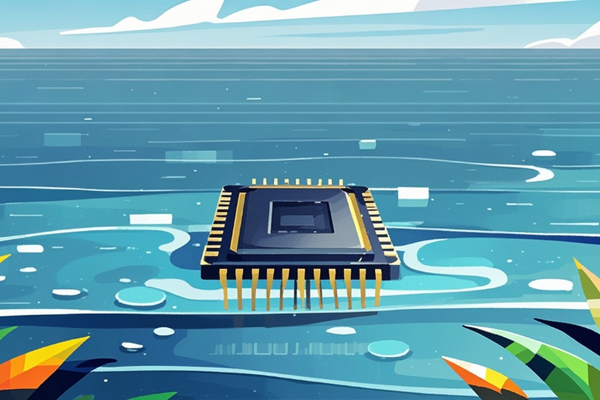AI霸主的焦虑:关税战阴影下的黄仁勋远虑
英伟达和其CEO黄仁勋 recentlly became the focus of tech circles. Their dominance in the field of artificial intelligence (AI) and the lingering “trade war” shadows have drawn much attention. This not only affects Nvidia’s business in China but also influences the future trajectory of the entire AI industry. So, what is Jensen Huang, the man in the eye of the storm, worried about?
The Sword of Damocles: More Than Just Price Increases
When people hear about tariffs, they often think of increased prices. Indeed, tariffs directly raise the cost of imported goods. However, for Nvidia, the issue is far more complex than just doubling the price.
A closer look at the range of tariffs imposed by the U.S. and China reveals that Nvidia’s AI chips may not face an immediate price hike. However, the uncertainty brought about by geopolitical factors is what truly keeps Jensen Huang up at night. This uncertainty manifests in several ways:
- Supply chain risks: Tariffs could disrupt supply chains, forcing Nvidia to reassess its production layout, find alternative suppliers, and incurring additional operational and time costs.
- Market access restrictions: Tariffs may be just the beginning, followed by more stringent market access restrictions. If China imposes restrictions on Nvidia’s AI chips, its market share in China could face significant threats.
- Technological cooperation obstacles: The progress of AI technology relies on global cooperation and exchange. The trade war may hinder cooperation between China and the U.S. in the AI field, slowing down the development of the entire AI industry.
These risks hang over Nvidia like the Sword of Damocles, constantly threatening its global strategy.
The Chinese Dilemma: Opportunities and Challenges Coexist
Nvidia is often referred to as the “AI water vendor,” a metaphor that aptly describes its role in the AI industry chain. Like the water seller during the gold rush, Nvidia provides powerful AI computing platforms to support various AI applications across industries. China, with its vast data resources, vibrant AI startup environment, and massive market demand, is one of Nvidia’s most important gold rush sites.
However, like any gold rush site, the Chinese AI market is also filled with competition. Apart from Nvidia, there are international giants like AMD, and domestic chip manufacturers like Huawei and HiSilicon. The trade war has provided an opportunity for domestic companies to rise, making the competitive environment for Nvidia in the Chinese market even more complex.
Faced with this situation of coexisting opportunities and challenges, Nvidia must navigate the situation wisely and formulate flexible response strategies.
Jensen Huang’s Long-term Concerns: Technological Independence and Ecosystem Building
Under the shadow of the trade war, Jensen Huang’s long-term concerns go beyond immediate business. He is thinking about long-term strategic layouts.
Technological independence: Nvidia knows that mastering core technologies is the key to winning in fierce market competition. Therefore, Nvidia has been increasing its R&D investment, continuously launching more advanced AI chips to maintain its technological leadership.
Moreover, Nvidia is actively promoting the open-source and standardization of AI technology, lowering the threshold for AI technology and promoting its popularization and application.
Ecosystem building: Nvidia is not just a chip company; it is a vast AI ecosystem. Nvidia attracts numerous developers and partners by providing software tools, development platforms, and technical support.
The advantage of this ecosystem is that once users get used to using Nvidia’s platform and tools, it is difficult for them to switch to other platforms easily. This ensures stable market demand for Nvidia’s AI chips and enhances its ability to resist risks.
Forewarned is Forearmed
Facing complex geopolitical environments and fierce market competition, Jensen Huang’s long-term concerns are indeed necessary. Only by being prepared in advance can one navigate safely and steadily.
Nvidia needs to communicate more actively with the Chinese government and enterprises, understand the needs and policy changes of the Chinese market, and formulate market strategies that fit the national conditions of China.
At the same time, Nvidia should also strengthen cooperation with domestic companies to jointly promote the development of the Chinese AI industry.
In addition, Nvidia should actively explore new markets, diversify market risks, and reduce dependence on a single market.
Only by doing so can Nvidia continue to maintain its leading position in the AI field and achieve sustainable development in the shadows of the trade war.

